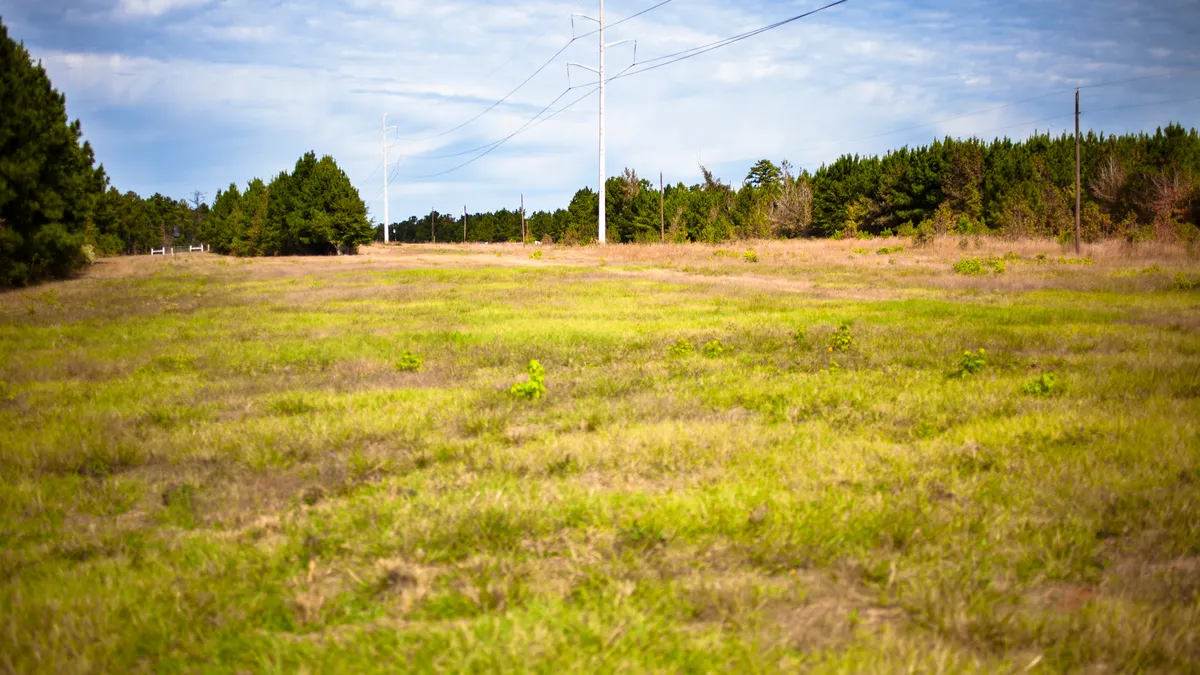Dive Brief:
- A NextEra Energy subsidiary and the Southern Renewable Energy Association, or SREA, are urging the Federal Energy Regulatory Commission to reject the Midcontinent grid operator’s request to cancel a contract for a competitively bid transmission project in East Texas that was delayed by a state law giving incumbent utilities the right of first refusal to build power lines.
- But Entergy on Friday supported the Midcontinent Independent System Operator’s request to terminate an agreement with NextEra Energy Transmission Midwest to build the roughly $115 million Hartburg-Sabine project in the utility company’s service area.
- “MISO determined that the project will not provide any meaningful adjusted production cost benefits, that terminating the project will not adversely affect reliability, and that continuing to include the project in transmission models could distort transmission planning processes and potentially harm stakeholders,” Entergy said in the filing.
Dive Insight:
The dispute over the Hartburg-Sabine project is part of a broader fight over who should be able to build transmission projects: incumbent utilities or independent transmission companies.
The MISO board approved the Hartburg-Sabine project in early 2018 as part of a MISO Transmission Expansion Plan, or MTEP. The project was deemed a Market Efficiency Project, a type of project that reduces grid congestion, and became the second competitive transmission project awarded in MISO. NextEra won a solicitation to build the project, which was set to interconnect parts of Entergy Texas’ system by June 2023.
The project hit a roadblock when the Texas Legislature in mid-2019 passed a right-of-first-refusal law that gives incumbent utilities the sole right to build transmission projects that touch their service territories. It prevents NextEra from moving forward with the Hartburg-Sabine project, according to MISO’s request at FERC.
Although NextEra received a potentially favorable ruling from the U.S. Court of Appeals for the Fifth Circuit in August, the ROFR remains in effect and it is unclear if the project will ever be built, MISO said.
As a result, MISO said it conducted a “variance analysis” to examine the outlook for the project. Based on a new study, the project no longer provides economic or reliability benefits, according to MISO. In combination with the project’s delay, MISO decided to cancel the project.
However, NextEra contends it is too soon to cancel the project, a move the company said could incentivize incumbent utilities to use litigation and other delay tactics to undermine competitive transmission in favor of possibly more expensive and less efficient solutions.
Further, MISO failed to assess the benefits of the Hartburg-Sabine project compared to a $1.1 billion transmission line proposed by Entergy Texas in the pending MTEP process, according to NextEra. The Entergy project would address some of the same reliability issues that NextEra’s project was designed to alleviate, the company said.
Since the project was awarded to NextEra, some of its benefits were eroded by “bottom-up” utility-proposed transmission projects and a 1.2-GW gas-fired power plant planned by Entergy Texas, SREA said in a Feb. 10 filing at FERC.
A previous $108 million economic transmission project in Entergy Louisiana’s service territory — called Waterford-to-Churchill — was canceled after its benefits were reduced by local transmission projects and the developmentr of the utility’s $870 million St. Charles gas-fired power plant, according to SREA.
“Entergy appears to be using an anti-competitive strategy of capturing, delaying, and/or canceling transmission projects with local generation assets at significant cost to local ratepayers, while at the same time, not resolving underlying load pocket problems,” SREA said.
The trade group’s claims are “without merit” and Entergy plans to respond to them in comments at FERC, Neal Kirby, spokesman for the New Orleans-based company, said in an email Monday.














